In the spring of 2021, Edurio ran England’s largest study of equality, diversity and inclusion (EDI) among school staff. In the subsequent report, we reviewed the school experience of over 16,000 staff from 381 schools, 33 trust central teams and 50 trusts. We asked these staff members about the whole workplace experience, from recruitment to on-the-job experiences and advancement, looking at how people with different protected characteristics feel about their time working in schools and trusts.
This blog is part of our EDI blog series where we look deeper into some of the data behind the report. In this post we will be further examining our findings on the experience of people with different ethnicities in schools.
The importance of EDI continues to be highlighted within the education sector in recent years, with Natalie Arnett, Senior Equalities Officer at NAHT (School Leadership Union), stating in our equality, diversity and inclusion (EDI) report, “Education remains one of the best tools we have to tackling inequality and discrimination.”

Natalie goes on to say that by using education, we can start to build a truly inclusive society, open minds and challenge prejudice. However, we must also recognise that this isn’t happening universally and that for some individuals working in education, the reality might feel different. This research reinforces what leaders know about the importance of creating and promoting an inclusive culture that welcomes diversity and champions equality. It also highlights the need to ensure that this commitment is recognised and experienced by all.
Research into EDI in England by Edurio
Overall, four in five respondents stated that their workplace is committed to promoting EDI, yet this opinion differs between different groups.
For instance, 69% of Minority Ethnic staff feel that their workplace is committed to promoting equality, diversity and inclusion, whilst a far larger proportion (83%) of White British/Irish staff do.
In addition to this, four times as many Minority Ethnic staff feel that their workplace is not committed: 8% compared to 2% of White British/Irish staff.

How committed to promoting equality, diversity and inclusion is your workplace?
This difference of experience between staff with different ethnicities is also evident when looking at key elements related to staff’s school life.
In the below graph, we can see that overall equality and inclusivity, as well as experiences relating to promotions and the recruitment processes are often seen as less positive by those from a Minority Ethnic background. Perhaps the most concerning observation is that less than half of respondents (48%) from a Minority Ethnic group said they were confident decisions impacting promotions are free from bias.
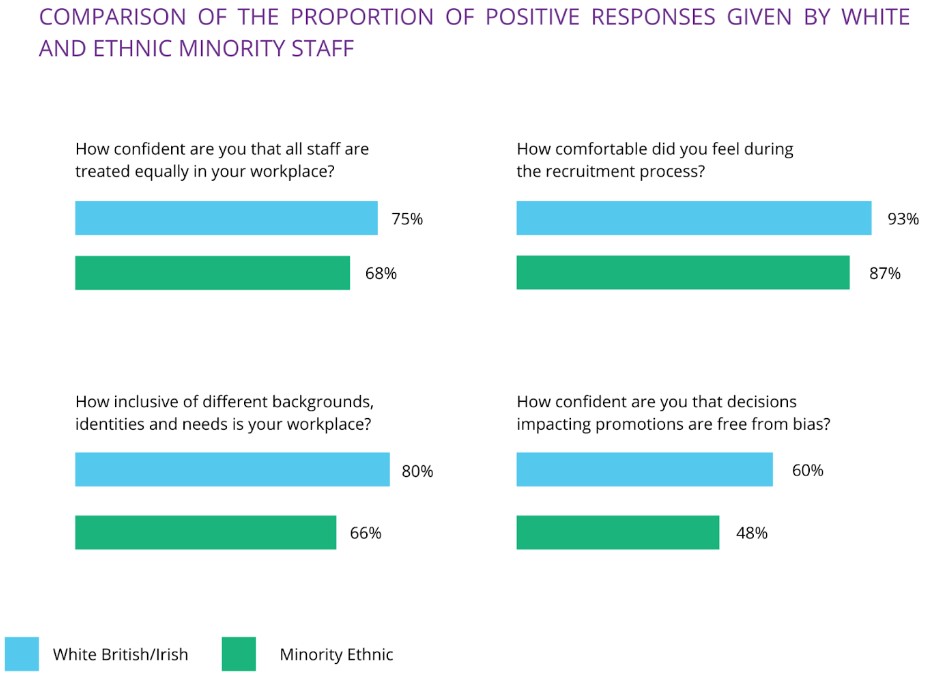
What Are the Key Differences Between White and Minority Ethnic Staff Experiences?
- Minority Ethnic staff are four times as likely (88%) to feel their background and identity may be a barrier to advancement in their workplace
- Two thirds of Minority Ethnic staff (66%) believe their workplace is inclusive, far lower than White staff
- 8 in 10 White British/Irish staff are confident recruitment decisions are free from bias; this compares to 7 in 10 Minority Ethnic staff
- Fewer Minority Ethnic staff stated they would feel comfortable applying for a promotion they were qualified for; 48% compared to 60% of white staff
- Almost all (93%) White staff felt comfortable with their background or identity in the recruitment process, whilst only 8 in 10 Minority Ethnic staff did
Equality, Diversity and Inclusion: Lessons for Trust Leaders
In our report, we also assessed respondents' confidence in their school/trust’s commitment to EDI, looking at what factors could influence confidence. These factors include:
- Confidence that leadership would take action to prevent discrimination
Here, out of those who were very confident their workplace was committed to EDI, 94% also felt confident that their leadership would take action if an issue occurred. On the other side of the data, out of those who didn’t feel at all confident in their workplace’s commitment to EDI, only 10% felt that leadership would take action.
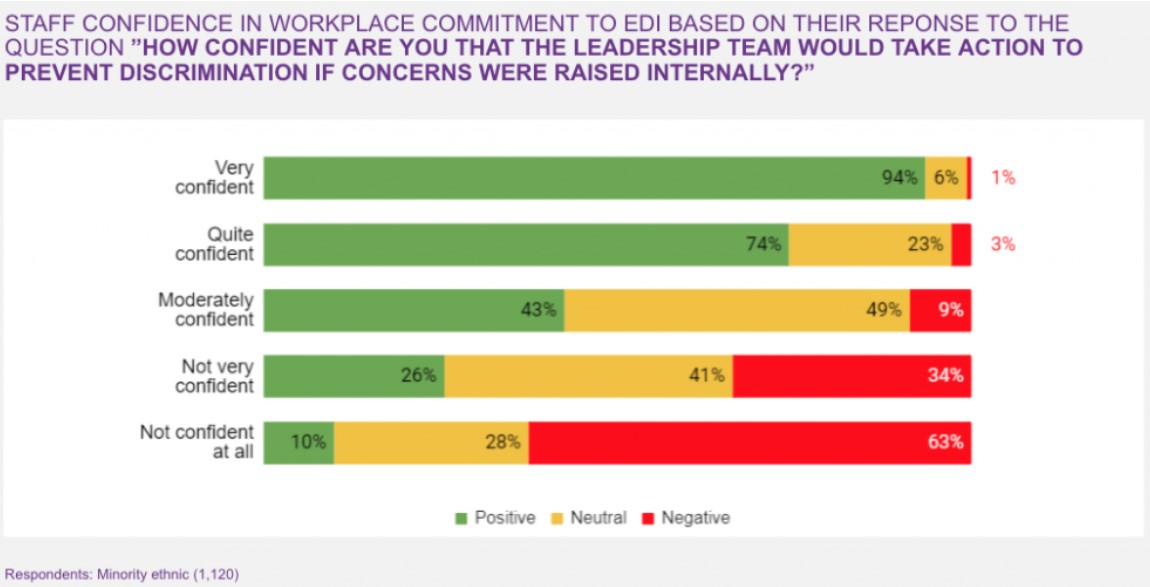
- Confidence that promotions are given without bias
Out of the respondents who were ‘very confident’ their workplace was committed to EDI 96% were also confident promotions happened without bias in their schools/trusts. Whereas out of those who had no confidence at all towards their workplace’s commitment to EDI, only 21% felt positive towards promotions being given without bias.
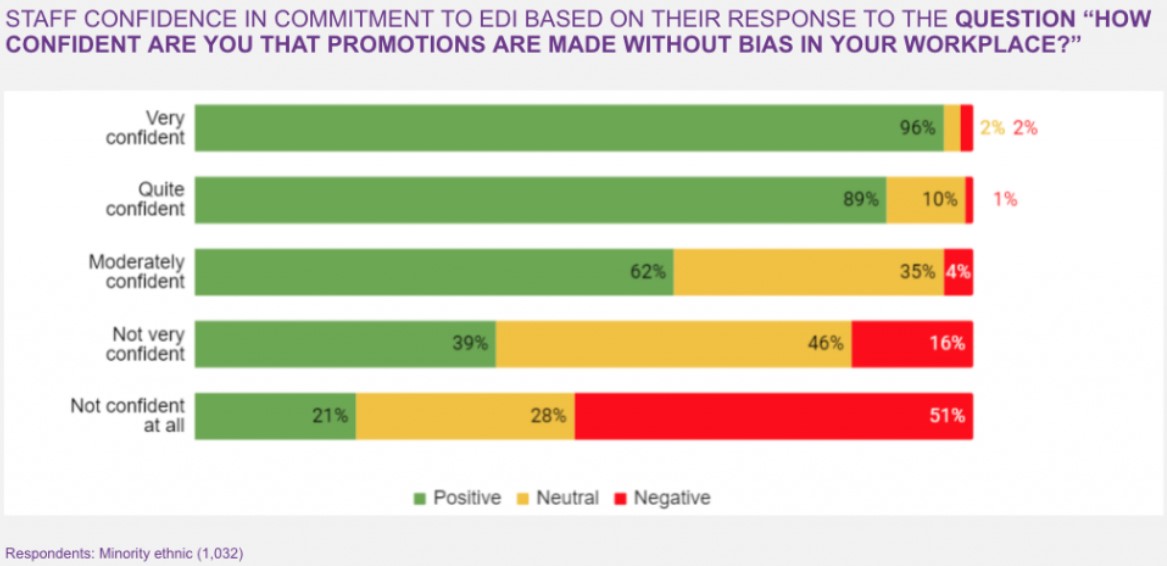
- Satisfaction with training on topics related to EDI
Finally, out of those who reported feeling ‘very confident' in their workplace’s commitment to EDI 98% were satisfied with training on topics related to EDI. Yet, out of those who felt ‘not confident at all’ towards EDI commitment in their workplace, only 11% felt ‘satisifed’ about training on EDI topics.
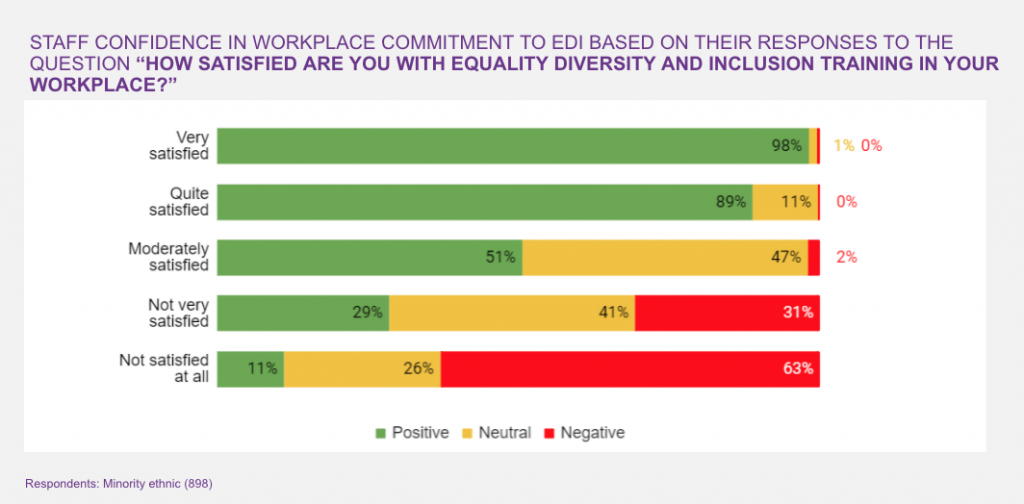
Final Takeaway on Race and Ethnicity in Schools
As Ambition Institute summarised our data in our more extensive EDI report:
“It’s clear that many respondents do feel their schools or Trusts are committed to diversity and inclusion. But there are also significant differences in how ‘fair’ people perceive recruitment and promotion processes to be.”
As a school or trust leader, where do you go from here? Well, Hannah Wilson, Founder and Director of Diverse Educators concluded, we don’t always know what we do not know, so we need to commit to identifying and closing our individual and collective blind spots. A great starting point is by creating psychologically safe spaces for courageous conversations to take place. The hard truths that can be generated from such discussions may create discomfort. Still, they will also inform the organisation about what they can do differently and what they can do better to make a higher sense of belonging for all stakeholders.
In the past year, we also held a roundtable event for schools and trusts to further discuss what steps they’re trying to take in relation to EDI.
Using Edurio to Focus on Stakeholder Feedback
If you’re wondering about how else you can talk to your staff, students and broader community, our research is based on our EDI survey that many schools and trusts run to assess their needs.
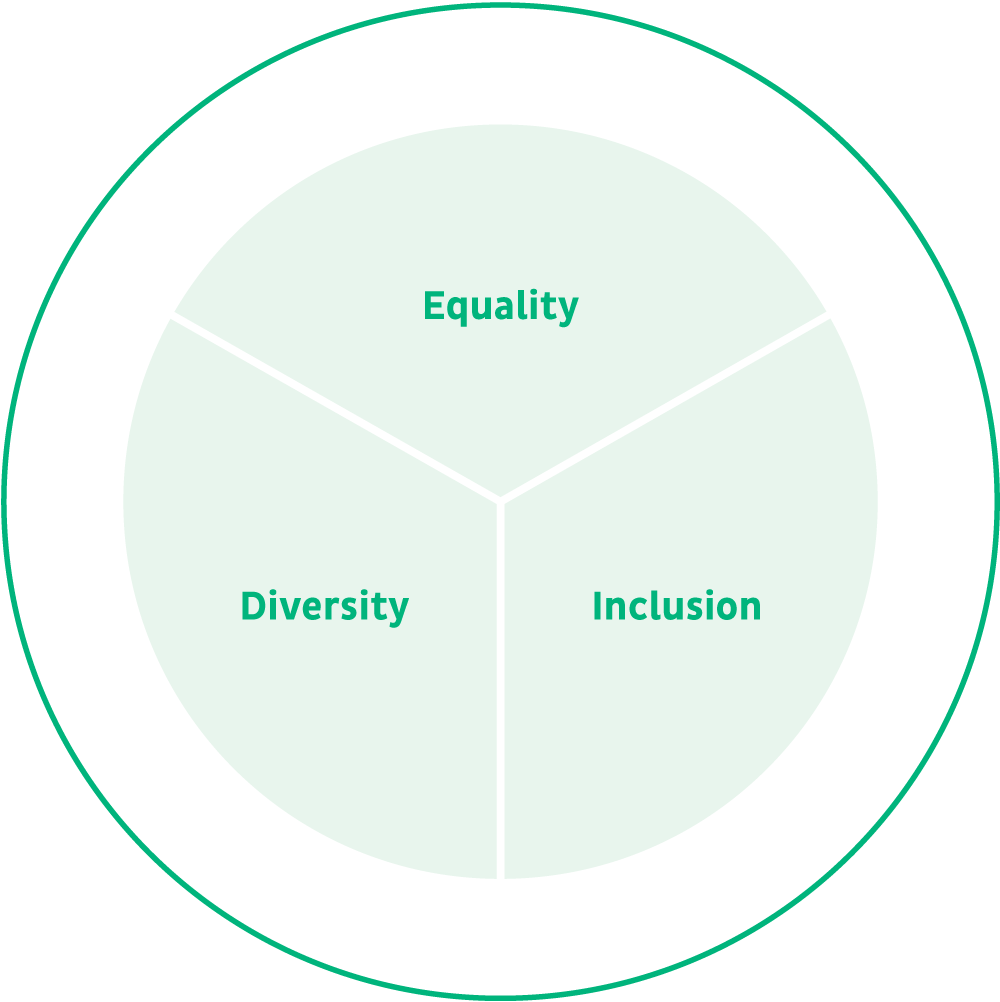
Like our benchmark EDI report, our survey provides insights on equality, diversity and inclusion measures and explores the quality of your organisation’s recruitment and advancement processes. This survey will help you develop a sustainable action plan that promotes equality, diversity and inclusion across your organisation.
We’ve already helped over 2000 schools in the UK and internationally to analyse stakeholder feedback, and we’re ready to help more school leaders make better, more informed decisions.

No comments.